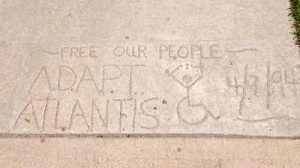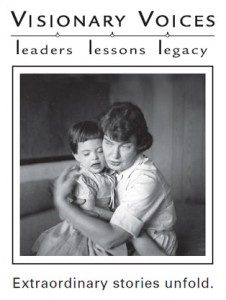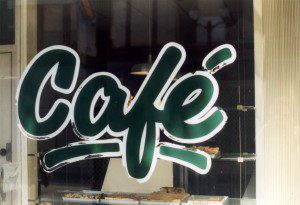
Once upon a time, communities were closed to people with disabilities. Steps and curbs prohibited people with mobility challenges, like my daughter Mikelle, from accessing transportation, government buildings, entertainment venues and market places.
It didn’t stop there. The doors to regular education were closed tight for all, but typical children. Access to housing and employment were almost non-existent unless through institutional care and sheltered workshops. And sadly, many church doors remained closed to those individuals and families who experienced disability.
Drastic action was required to right the wrongs of a closed society. Courage and determination blew the civil rights door open for people with disabilities as they threw themselves out of their wheelchairs onto the dark asphalt street in front of the Colorado State Capitol building to bring focus to legislators and community leaders about the lack of accessible transportation in our community. Many dedicated professionals, families and friends supported those who lay on the pavement waiting to be arrested. Their efforts were pivotal in the creation of accessible transportation systems across the country.
The doors to education opened up next as community partnerships grew. For the first time in history, children with disabilities could be educated along with “typical” children. This success help to spawn the idea of employment for people with disabilities and the field of supported and customized employment was born.
Ideas and people nurtured these changes in the 20th Century and they will again as the 21st Century gains traction in our communities.
Towering demands are placed on existing resources as educational and rehabilitation systems push the boundaries of meeting the need for services and igniting the need for more community involvement.
Our challenges are community challenges. Community leaders and everyday people benefit from engaging in conversations about how, with support, people with disabilities can be valuable contributors to society.
Initially, it can be daunting to invite other people in to your life. Start by inviting people you already know to your student’s next IEP (Individual Education Plan) session or for coffee. Tell them about your student’s dreams and ideas for the future. Ask for their thoughts in return. Consider asking the teller from the bank, even the branch manager. Mikelle and I were able to leverage the brilliance of the local barber to unlock a few doors to her middle school experience. My hair dresser and his network have become invaluable over the years. Beautifully, he has passed his interest in our family to his son, who is Mikelle’s good friend.
Life can be overwhelming. Sometimes we get caught up in just trying to get through the school year. One day, school will end. Without a strong community of support, the road to transition gets bumpy. Get your community up and running and you avoid being Roadkill on the Road to Transition.
Community connections cushion the often challenging entrance into adulthood. Friendships and connections give meaning to the endless summer as you sit on various waiting lists from adult services. Mikelle benefited enormously from her friendships with Ian and Chelsea, her favorite baristas while on the waiting list in Denver.
Chelsea and Ian took it a step further by becoming involved in Mikelle’s Group Action Plan. Our friends from Full Life Ahead Foundation facilitated her goal setting session. Chelsea and Ian invited friends, my hair dresser brought his partner and our banker brought his warmth and ideas as we came together over chili and cornbread. The wave of support nearly swept us away. Within months, Mikelle met most of her “big” goals, which included starting a business, moving into her own place, owning her own van and doing presentations across the country.
As rehabilitation systems change, leaders struggle with competing priorities. In order to avoid getting lost in the struggle, we must think more like community builders crafting and shaping existing systems to meet the needs of our children.
Be bold; be pioneering, just like the courageous 20th Century disability advocates were as they halted traffic for two days on one of Denver’s busiest streets. If the door does not exist, we need to build one—together.


